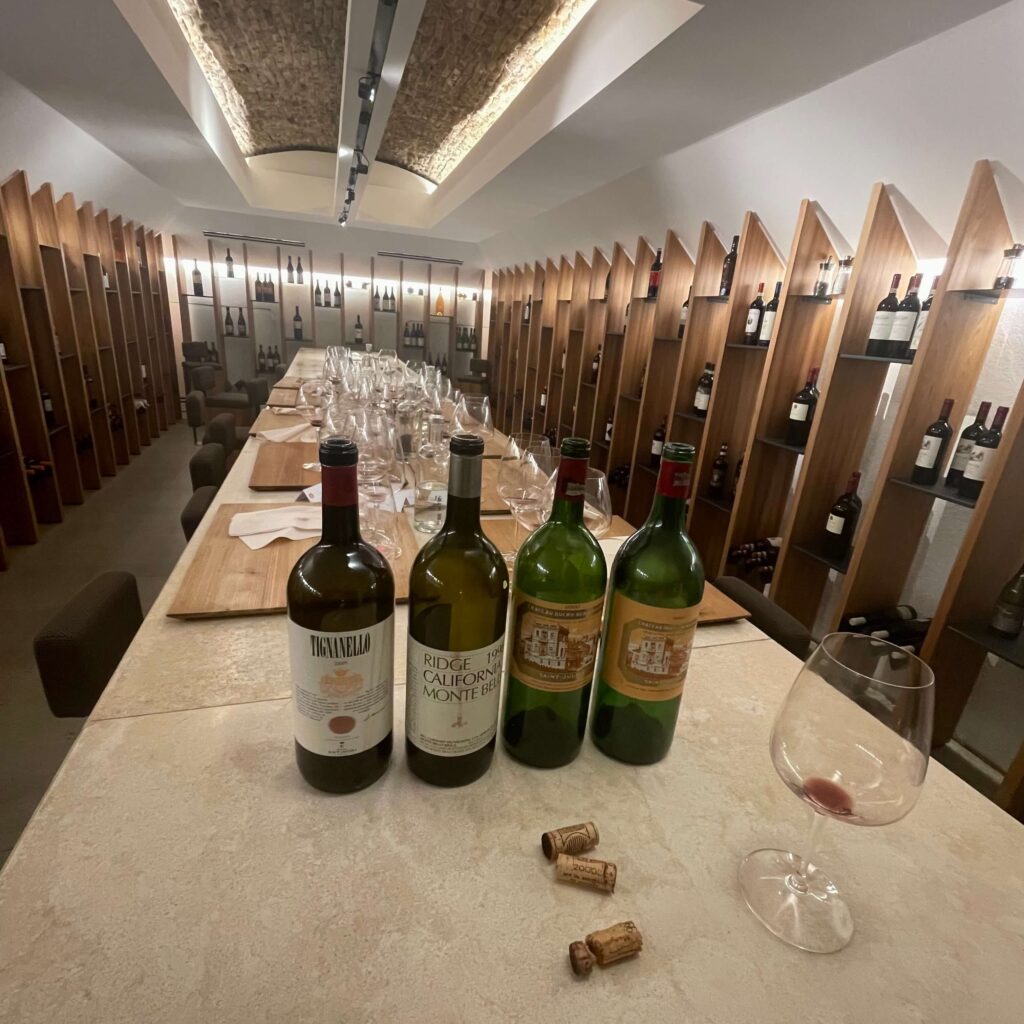The 1275 team recently hosted clients and friends in Geneva old town for an evening celebrating friendship. The dinner – designed as an ode to conviviality – was also a chance for us to showcase wines across arguably some of the greatest decades for wine quality to date.
Featuring vintages of the likes of 2009, 2000, 1996, and 1982, the evening proved that it pays to be patient, and that exercising diligence in sourcing fine wines offers maximum reward.
The importance of sourcing over time: an evening 20+ years in the making
The great Michael Broadbent once said that “drinking good wine with good food in good company is one of life’s most civilised pleasures”, but it is no easy feat to achieve. As demand for wines continues to grow, sourcing the right bottles at the right time in order to secure them for the future is becoming increasingly important.
Fast-forward 20 years, and finding bottles at their drinking peak may be nearly impossible, and certainly risky if one does not have access to the full documentation of how the wine has been stored and transported throughout its life.
What happens to wine as it ages?
Wine is a living, breathing product that can change dramatically over time. The quality of the grapes used to make wine, the weather conditions during the growing season, the production techniques used, and the aging process all contribute to a wine’s final quality.
Young wines tend to offer fruit-focused, “primary” flavours, and some secondary notes from the winemaking process. Those built to age that are opened young may appear too high in acidity, or bitter from tannins which have not yet had the necessary time to soften.
Tertiary notes – additional flavours and aromas that develop as a wine ages – bring complexity, subtlety, and magic to the great wines we know and love.
How do storage conditions affect the way a wine ages?
Storage conditions play an essential role in the aging process, as they can make or break a wine’s quality when finally opened. Even minor changes in temperature, humidity, and light exposure can damage the chemical composition and flavour profile.
Wines that are stored at 12° with a humidity rate of 75% (preventing a cork from drying out and allowing air into the bottle, resulting in oxidation) minimise the risk of spoilage. These conditions are 1275’s minimum standard for both transportation and maturation in Geneva’s FreePort – a level of respect we feel is simply what is owed to the wines and their makers.
Our purpose is to prolong the enjoyment of great wine as we have been lucky to experience into the future, and for generations to come. All that’s required is a little foresight, planning, and above all, patience.

